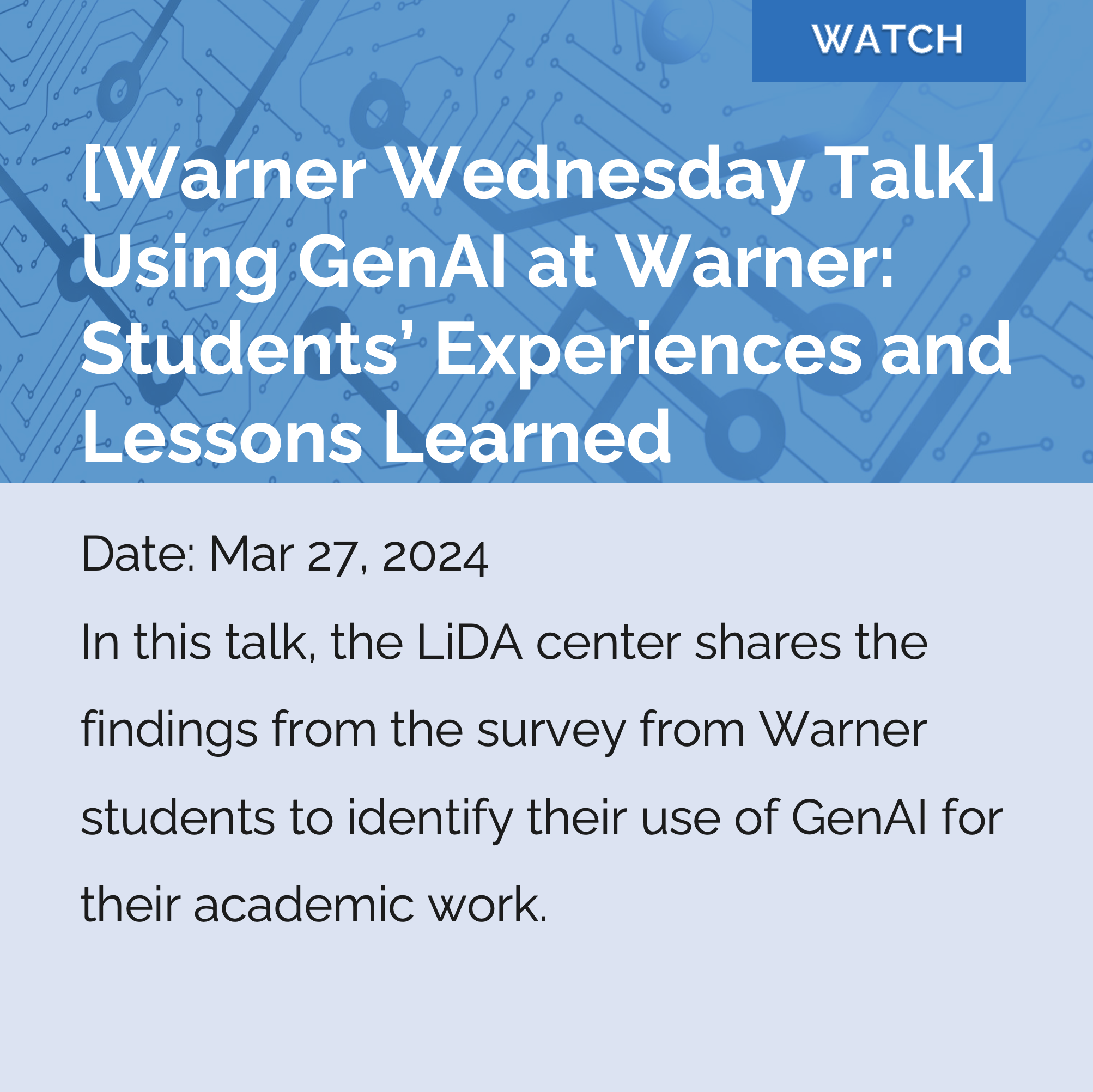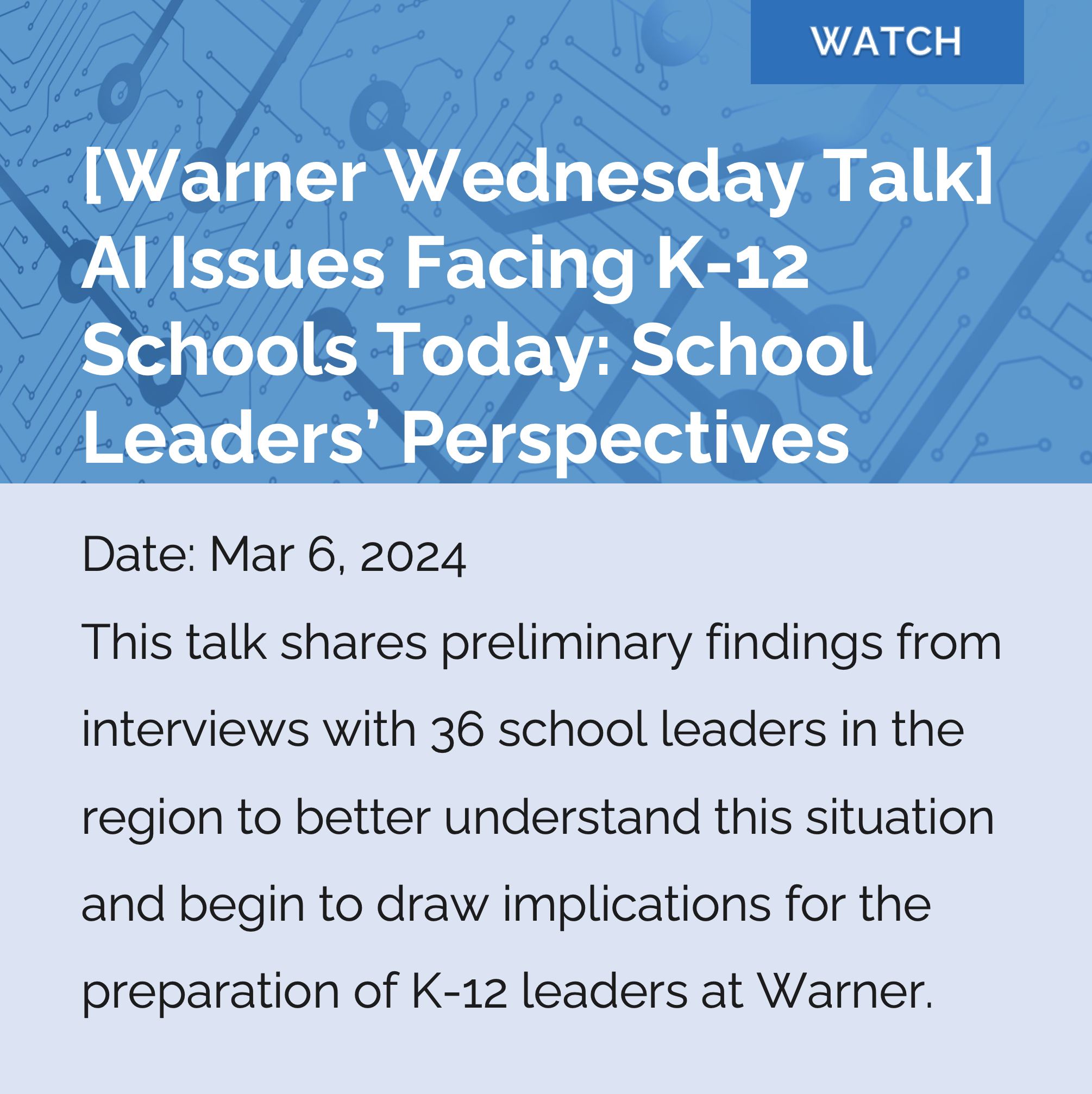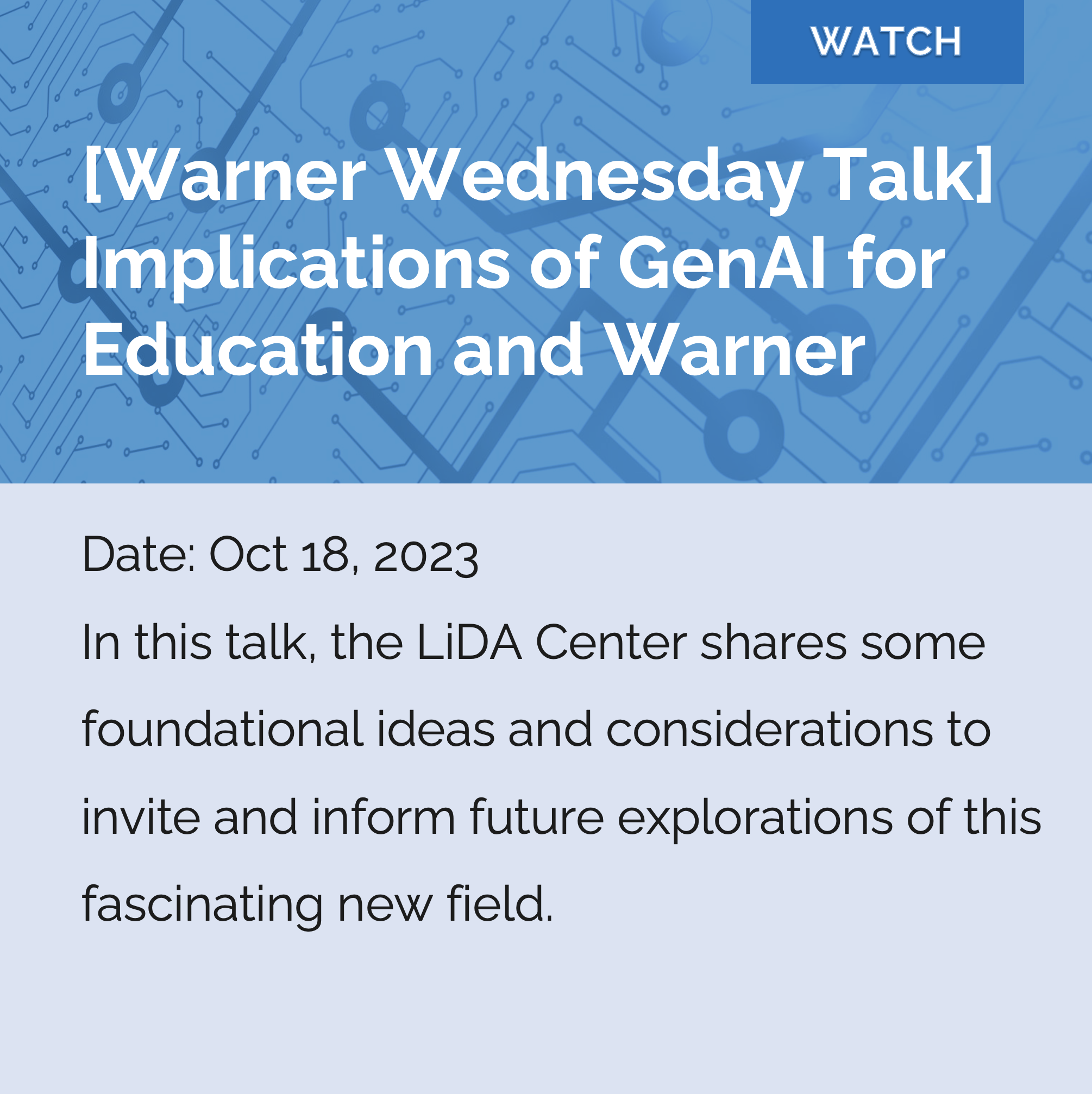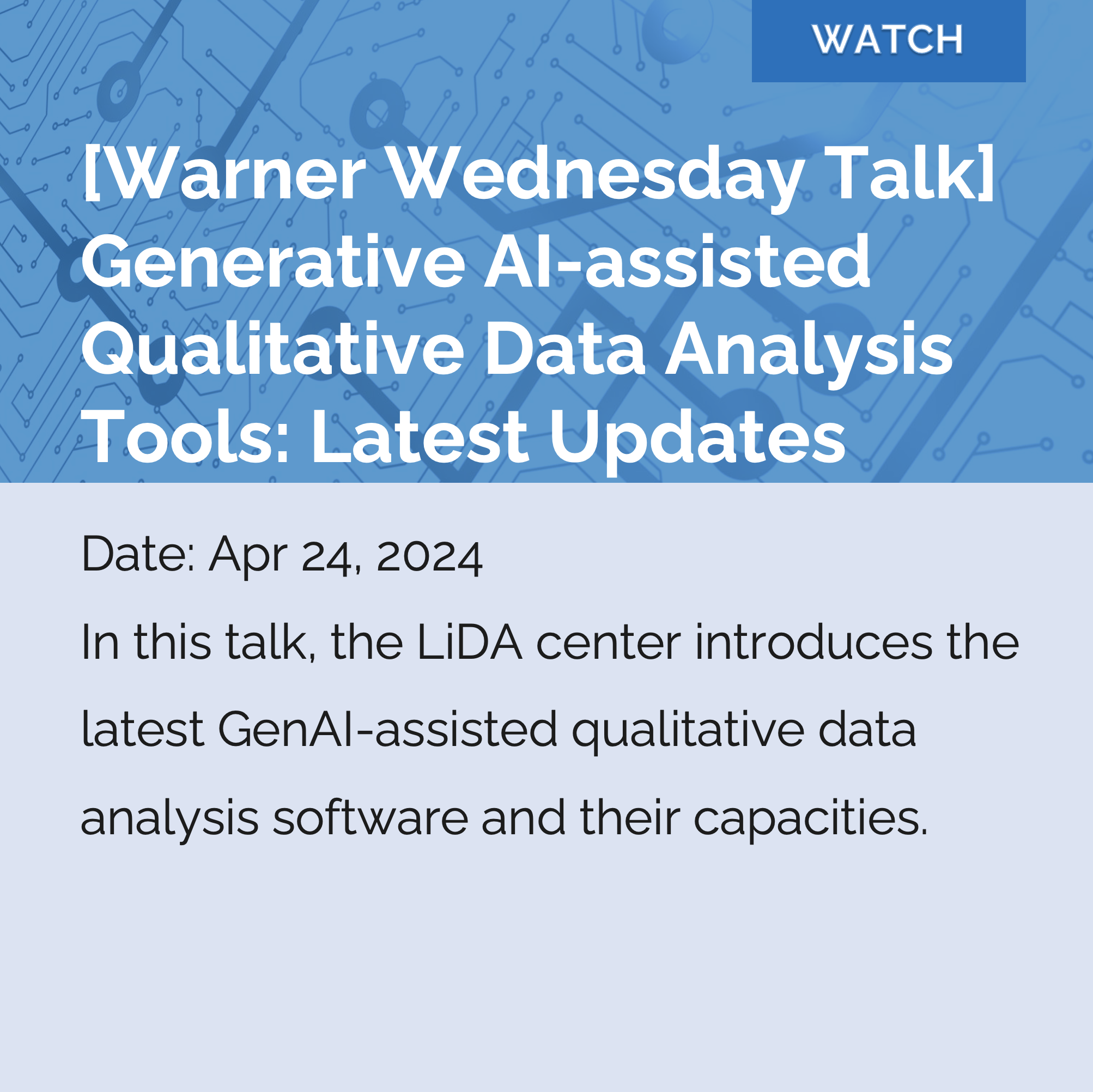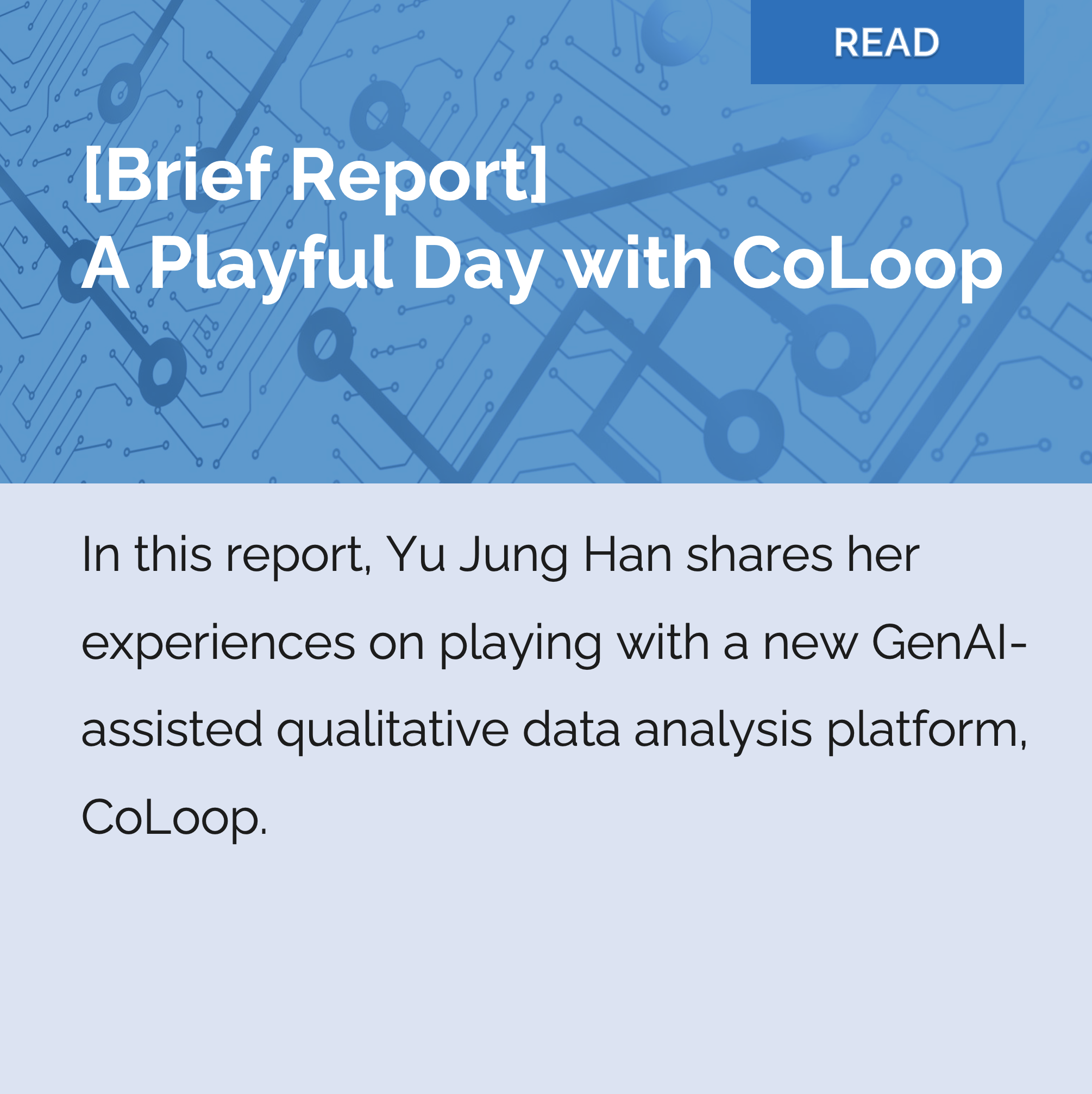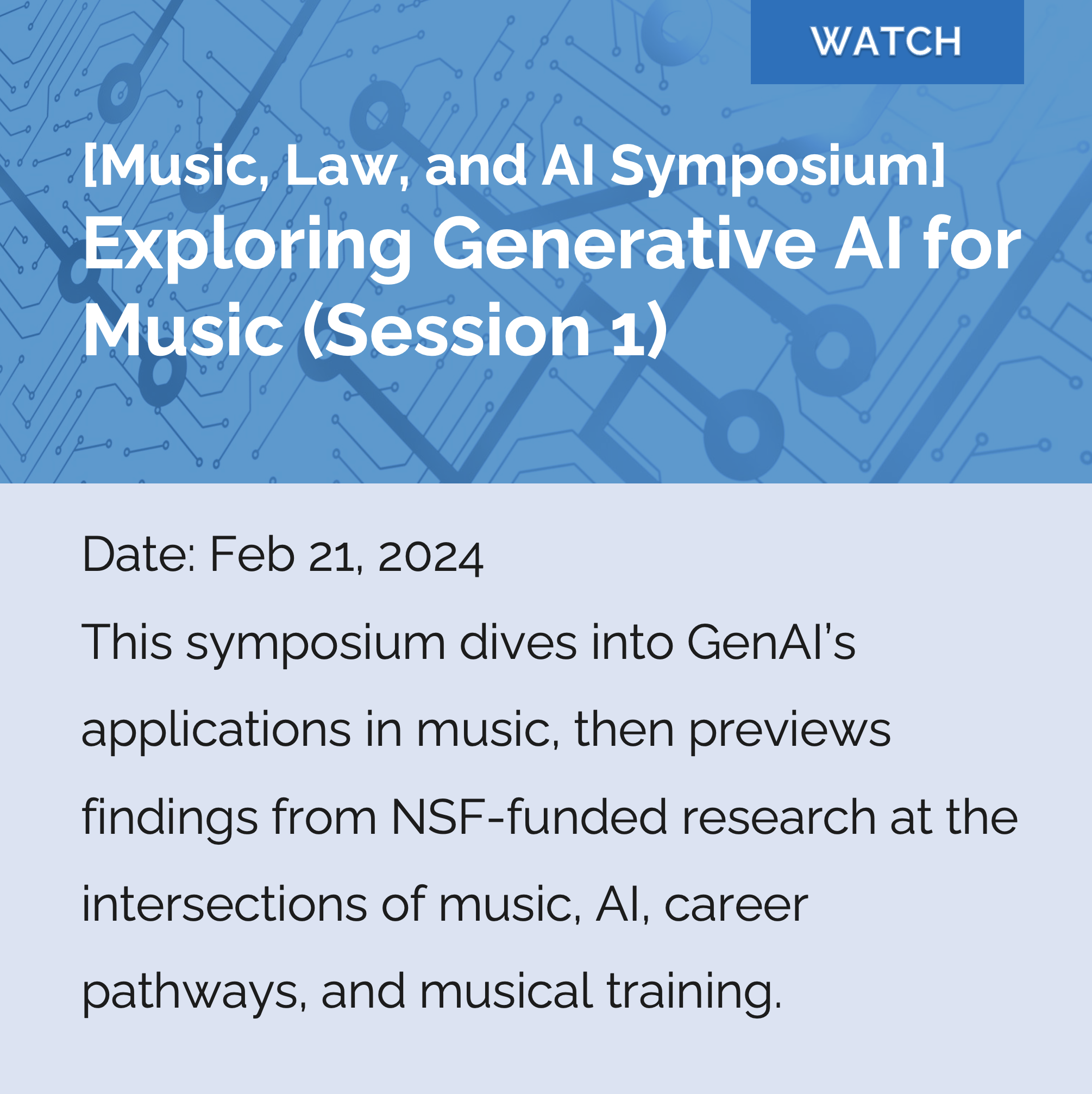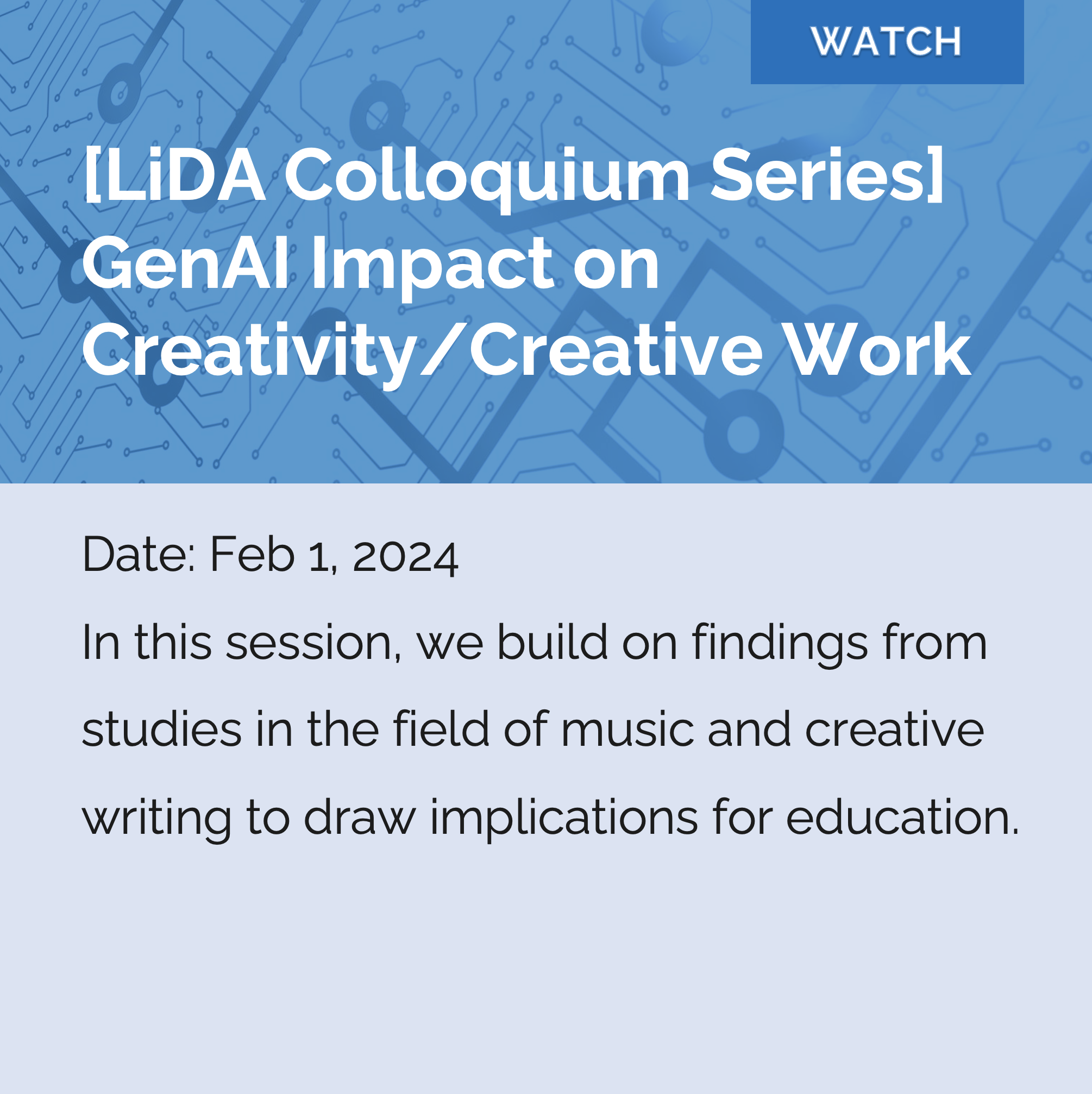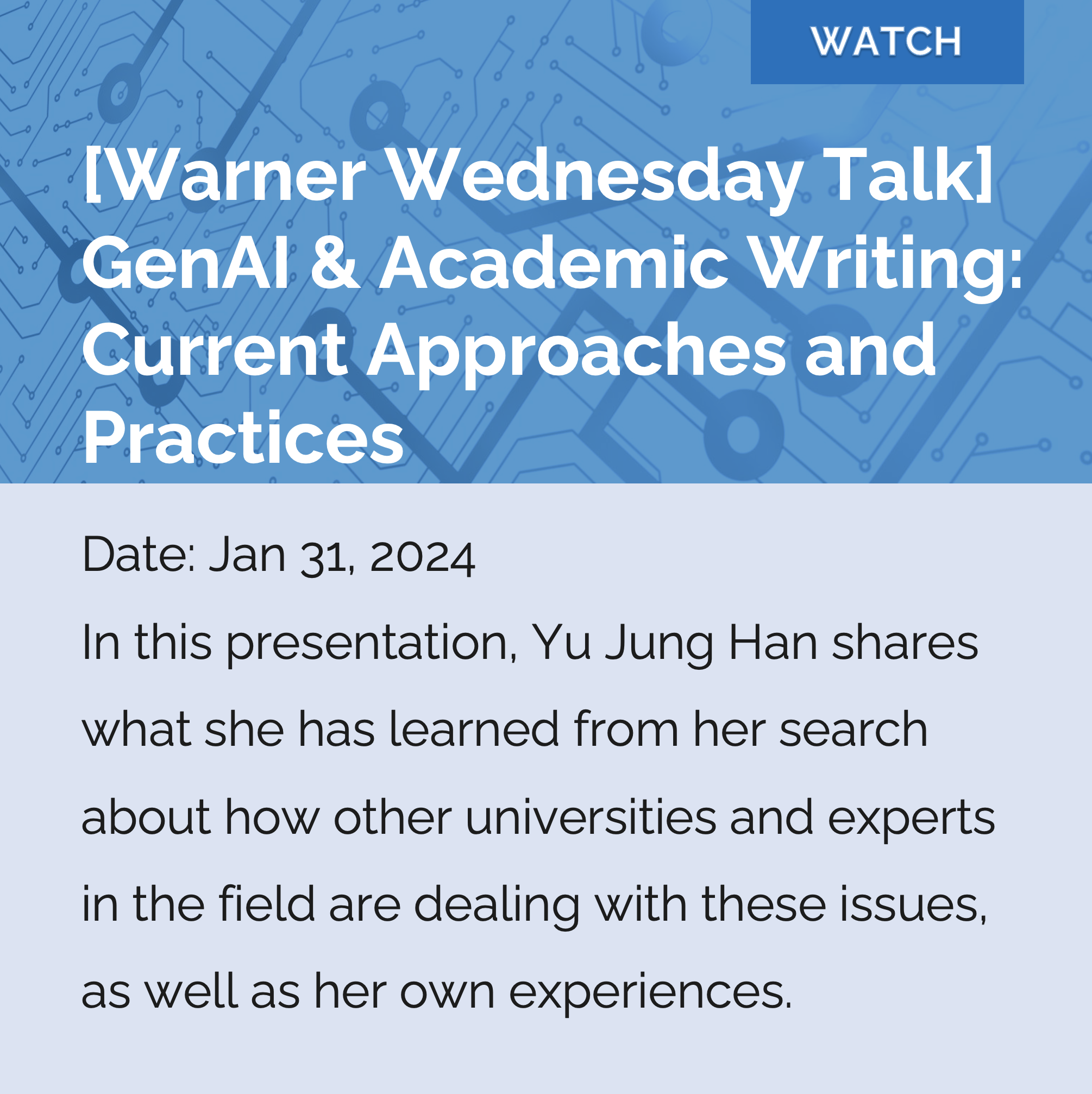- Explore the ‘Highlights from the LiDA Community’ section to discover recent standout moments from individuals around the LiDA center and LiDA community.
- In the ‘Selected Resources’ segment, we provide carefully selected resources for instant access to the latest, most succinct insights on the given topics.
GenAI for Teaching and Learning
Generative AI has the huge potential to revolutionize the way education is delivered as it can be used to create a personalized experience for each student and teacher. Yet, like any emerging technology, it comes with its own set of issues and challenges that needs to be addressed among the educators.
Selected Resources:
- Your Students Are Already Using AI You’ve Never Heard Of : “Far too many people view the free version of ChatGPT as a measure of what generative AI is capable of, and it is providing many in education with a false sense of reality.” – Yes, we agree. Read this piece to learn more about the paid version of GenAI for teaching and learning.
- Syllabi Policies for AI Generative Tools : Are you an instructor who is looking for examples of GenAI policy for your syllabus? Educators around the world are contributing to this Google doc to create an achieve of syllabi policies for GenAI uses.
- Generative AI Training Modules (The University of North Carolina at Chapel Hill) : Take advantage of this open module developed by the University of North Carolina at Chapel Hill.
- GenAI in Higher Education: Fall 2023 Update Time for Class Study : This study is on AI usage in higher ed from late 2023.
- CU Committee Report: Generative Artificial Intelligence for Education and Pedagogy (Cornell University) : “To address the risks of GAI while maximizing its benefit, we propose a flexible framework in which instructors can choose to prohibit, to allow with attribution, or to encourage GAI use”.
GenAI for Educational Research
In higher education, research is a crucial pillar. The field is now experiencing a transformative impact from GenAI, revolutionizing the way we conduct academic investigations.
Selected Resources:
- Using Generative AI for Scientific Research (University of Michigan) : University of Michigan just published a webpage on using GenAI for scientific research. From productivity and data generation/analysis to reporting, this page contains critical points to start from.
- Guidance for generative AI in education and research (UNESCO): This guidance offers concrete recommendations for policy-makers and educational institutions on how the uses of GenAI tools can be designed to protect human agency and genuinely benefit learners, teachers and researchers.
GenAI as a Paradigm Shift
Generative AI is changing our perceptions of various concepts by challenging their fundamental definitions. We have already witnessed a similar challenge when it comes to how we view learning and cheating. We invite you to engage in discussions about how GenAI is shifting norms across different fields.
Selected Resources:
- Generative Artificial Intelligence in Higher Education: Evidence from an Analysis of Institutional Policies and Guidelines : This article shares the institutional policies and guidelines on GenAI from 116 US universities. The data was collected from October 9, 2023 to November 26, 2023 (Click “Download PDF” on the top right).
- Impact of generative AI on skills in the workplace (Future Skills Organisation) : “The primary impact on the training system will be at the university level”. See Page 7 to learn more.
-
Postplagiarism: transdisciplinary ethics and integrity in the age of artificial intelligence and neurotechnology : The author claims that GenAI will open an era of postplagiarism. What do you think?

